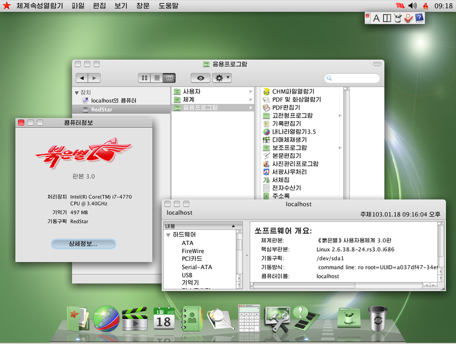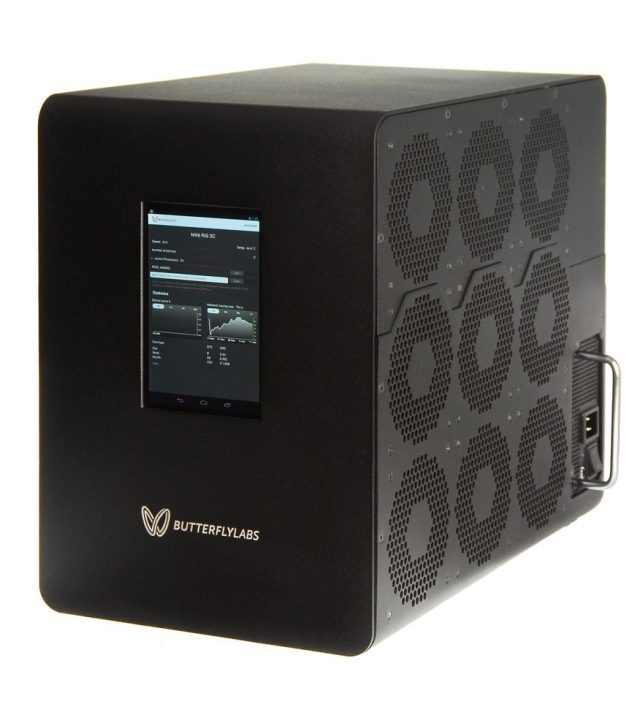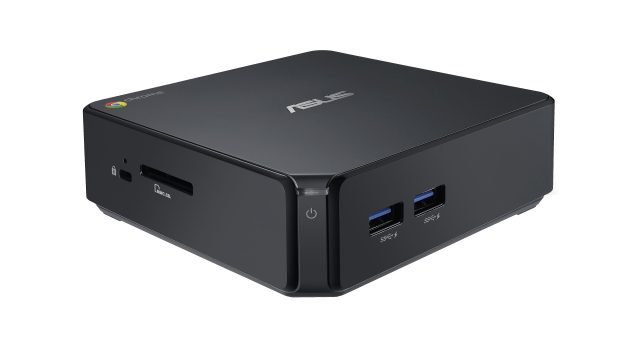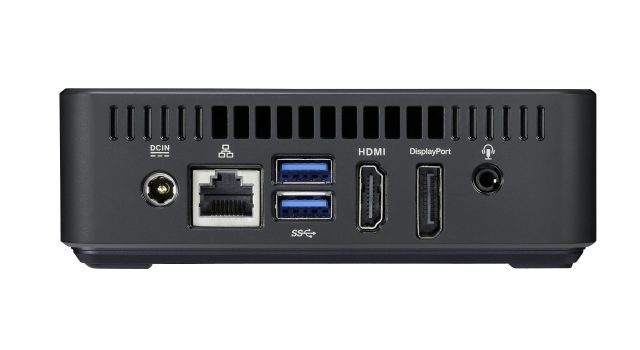Read more of this story at Slashdot.
Shared posts
Is Whitelisting the Answer To the Rise In Data Breaches?
AndrewWhitelisting is quite secure, but it's also a headache to get new things running.
Neither Microsoft, Nokia, nor anyone else should fork Android. It’s unforkable.
As happens from time to time, the suggestion has been made that Microsoft cancel Windows Phone, and instead fork Android. It's not the first time this suggestion has been made. It's probably not the last, either.
It's a poor idea. Google has worked to make Android functionally unforkable, with no practical way to simultaneously fork the platform and take advantage of its related strengths: abundant developers, and abundant applications.
The outline of the "Microsoft should fork Android" argument is as follows: Windows Phone doesn't have huge developer buy-in or sales success, but Android has both. By forking Android, Microsoft could provide unique value—corporate integration with things like Exchange, Active Directory, and System Center or InTune; full Office support; a polished user experience—and make the platform depend on its own cloud services (Bing, Bing Maps, Azure) rather than Google's. But simultaneously, it would still have access to all the Android applications that people depend on.
Read 31 remaining paragraphs | Comments
Woz just gave Apple the worst advice in the history of bad Apple advice
AndrewYeah, Woz has lost it.
 We've heard countless hack analysts tell Nokia and BlackBerry that they should revive their fortunes by building an Android phone but we've never heard anyone give the same advice to Apple... until now. Wired reports that Apple cofounder Steve Wozniak, who has a long history of trolling his former company by critiquing its latest products while praising its rivals' offerings, thinks that Apple should seriously consider building an Android phone.
We've heard countless hack analysts tell Nokia and BlackBerry that they should revive their fortunes by building an Android phone but we've never heard anyone give the same advice to Apple... until now. Wired reports that Apple cofounder Steve Wozniak, who has a long history of trolling his former company by critiquing its latest products while praising its rivals' offerings, thinks that Apple should seriously consider building an Android phone.Continue reading...
Almost every cord cutter who streams the Olympics will be breaking the law
 Beginning Friday when the 2014 Winter Olympics kick off in Sochi, NBC will stream much of the action online to computers and to mobile devices through the NBC Sports Live Extra app, which is available for both Android and iOS phones and tablets. If you're a cord cutter and you manage to stream any of the Olympics online, however, the odds are pretty good that you'll be breaking the law.
Beginning Friday when the 2014 Winter Olympics kick off in Sochi, NBC will stream much of the action online to computers and to mobile devices through the NBC Sports Live Extra app, which is available for both Android and iOS phones and tablets. If you're a cord cutter and you manage to stream any of the Olympics online, however, the odds are pretty good that you'll be breaking the law.Continue reading...
Satya Nadella brings technical skill and enterprise strength, but what’s the consumer story?

Microsoft's lengthy search for a new CEO is over, and after all the waiting, the end result isn't that much of a surprise. Satya Nadella, formerly executive vice president of Cloud and Enterprise, is the company's new CEO.
Of all the names the rumor mill threw up, both internal and external, Nadella's was one of the most compelling: he has a strong software background (unlike, for example, Ford's Alan Mulally), and he knows Microsoft well (unlike Skype's Tony Bates or Nokia's Stephen Elop). Moreover, in a company that has historically been riven with in-fighting and politics, Nadella is widely liked and respected. Past and present insiders from across the company appear unanimous—both in public and in private—in their approval.
A natural pick
Nadella was born in Hyderabad, India. He earned a bachelor's degree in electrical engineering in India, a master's degree in computer science from the University of Wisconsin, and an MBA from the University of Chicago. After a stint at Sun Microsystems, he joined Microsoft as a program manager in the Windows developer relations group.
Read 19 remaining paragraphs | Comments
North Korea goes from Windows 7 to OS X with latest Red Star Linux
 Wait, what? Yep, you read that right. North Korea, with embargoes out the wazoo, has its own national operating system (of course), a Linux variant called Red Star OS. According to Computerworld, North Korea has changed the look of the OS from a...
Wait, what? Yep, you read that right. North Korea, with embargoes out the wazoo, has its own national operating system (of course), a Linux variant called Red Star OS. According to Computerworld, North Korea has changed the look of the OS from a...
Will Microsoft IIS Overtake Apache?
Andrewwow, I wonder what the reason for the huge uptick in IIS usage is...
Read more of this story at Slashdot.
Talking past each other: Bill Nye vs. creationist Ken Ham on evolution
AndrewI watched this last night. Ken Ham lost soooo bad. He never really answered Bill Nye's questions, and kept on peddling the same talking points.

PETERSBURG, KENTUCKY—A brightly lit auditorium was packed with young adults wearing bow-ties, young-Earth creationists, and a gaggle of media there to maybe see sparks fly. The sparks could have been generated by Ken Ham, president/CEO of Answers in Genesis and the Creation Museum, and Bill Nye the Science Guy, but instead, they mostly talked past each other for two-and-a-half hours on a snowy Kentucky night. The topic was one near and dear to both debate participants: the nature of acceptable scientific discourse. More specifically, they attempted to answer the question “is creation a viable model of origins in today’s modern scientific era?”
Ham and Nye both led off with short five-minute statements followed by 30-minute presentations punctuated by PowerPoint slides, video clips, and graphics intended to buttress their cases. Unsurprisingly, Ham’s starting point was Genesis, and he kept coming back to the assertion that God’s word as revealed in the first two chapters of Genesis is the definitive authority. All scientific inquiry should therefore begin with and proceed from there.
To make the case that science and creationism were compatible, he showed short video clips of scientists from around the world who believed in a literal six days of creation. "People are going to see what we really believe tonight," Ham promised. "I believe science has been hijacked by secularists" who seem to indoctrinate folks in the "religion of naturalism."
Read 10 remaining paragraphs | Comments
New lawsuit against Bitcoin miner manufacturer alleges fraud, negligence

One of the world’s most mysterious Bitcoin-related companies is now facing its first civil lawsuit in a United States federal court, with many more likely on the way.
Last summer, Ars reported on Butterfly Labs (BFL), which makes ASIC-based Bitcoin miners. In other words, BFL builds little boxes with specialized chips that do nothing but compute hashes in the Bitcoin blockchain—a process which can lead to real money for the miners. Given that the value of Bitcoin has skyrocketed in recent months (hovering around $820 per bitcoin as of this writing), mining coins when their value is lower is clearly profitable.
Martin Meissner, a German-Polish man who lives in China, placed an order for a BFL miner back in March 2013 but ultimately never received his order. He alleges that he spent over $62,000 to order two 1500 gigahash-per-second Bitcoin miners. To date, he has not received a refund for his payment. His lawsuit, filed in December 2013, accuses BFL of breach of contract, fraud, and negligent representation.
Read 18 remaining paragraphs | Comments
Microsoft backpedals: Windows 8.1 update hides tile interface by default

Microsoft is once again planning to alter the way its Start Screen works in Windows 8.1 Update 1. While the software giant originally released Windows 8.1 last year with an option to bypass the "Metro" interface at boot, sources familiar with Microsoft’s plans have revealed to The Verge that the upcoming update for Windows 8.1 will enable this by default. Like many other changes in Update 1, we’re told the reason for the reversal is to improve the OS for keyboard and mouse users.
We understand the latest internal builds of Windows 8.1 Update 1 have the boot-to-desktop option enabled by default, a change that Wzor noted earlier today. The update is still in development, and Microsoft could alter this further before it ships, but...
Meet the Asus Chromebox, a $179 fanless mini-desktop

Google's Chrome OS continues to show up on more and more devices, and while the majority of them are laptops, it looks like desktop users are going to have quite a few options as well. Joining LG's upcoming Chromebase all-in-one is the Asus Chromebox, a headless mini-PC that goes on sale in March for $179. At 4.88" by 4.88" by 1.65", it's similar to but slightly larger than Intel's more versatile NUC desktop in every dimension.
Despite its desktop-shaped package, the Chromebox is the same on the inside as many recent Intel Chromebooks, including the Acer C720. The base model includes a 1.4GHz dual-core Celeron 2955U based on Intel's Haswell architecture, integrated Intel graphics, 2GB of RAM, 16GB of solid-state storage, dual-band 802.11n with Bluetooth 4.0, and an SD card reader and Kensington lock slot. AnandTech reports that the Chromebox will also be available in higher-end variants with a 1.7GHz Core i3-4010U and a 2.1GHz (3.3GHz Turbo) Core i7-4600U and up to 4GB of RAM across its two DIMM slots. The Core i7 version apparently won't be available on American shores, though.
The Asus Chromebox includes many of the features of Samsung's $329 Chromebox originally introduced in 2012 but at a substantially lower price. Samsung's model had more display outputs but lacked HDMI, and its Sandy Bridge Celeron CPU also needed a cooling fan that the Asus version doesn't need.
Read on Ars Technica | Comments
It's time to call out T-Mobile's BS -- T-Mobile has done absolutely nothing to eliminate contracts
 T-Mobile's chief executive John Legere is a marketing genius. There's no denying it. His antics have made a carrier that no one really cared about a few short years ago the talk of the tech press on a regular basis. What's more, consumers are listening — T-Mobile added 4.4 million net new postpaid subscribers last year. In the fourth quarter of 2013, T-Mobile netted 869,000 new postpaid customers while it's self-proclaimed top rival AT&T only gained 566,000 net postpaid subs. Make no mistake about it, those are phenomenal results and T-Mobile is, without question, the most important wireless carrier in America right now. That said, it's time to clear the air. With tricky marketing and CEO Legere's constant barrage of shocking commentary, T-Mobile has managed to convince U.S. consumers that it has eliminated cell phone contracts. Simply put, this just isn't true.
T-Mobile's chief executive John Legere is a marketing genius. There's no denying it. His antics have made a carrier that no one really cared about a few short years ago the talk of the tech press on a regular basis. What's more, consumers are listening — T-Mobile added 4.4 million net new postpaid subscribers last year. In the fourth quarter of 2013, T-Mobile netted 869,000 new postpaid customers while it's self-proclaimed top rival AT&T only gained 566,000 net postpaid subs. Make no mistake about it, those are phenomenal results and T-Mobile is, without question, the most important wireless carrier in America right now. That said, it's time to clear the air. With tricky marketing and CEO Legere's constant barrage of shocking commentary, T-Mobile has managed to convince U.S. consumers that it has eliminated cell phone contracts. Simply put, this just isn't true.Continue reading...
It’s official: Microsoft names Satya Nadella as new CEO
 The rumors were true... well, some of them, anyway. Microsoft announced on Tuesday that it has picked enterprise and cloud boss Satya Nadella as its next CEO. The move comes after more than five months of searching that saw the company cycle through several rumored "top" candidates including Ford CEO Alan Mulally and former Nokia CEO Stephen Elop. In its official announcement naming Nadella as its new chief executive, Microsoft praised him for having "a relentless drive for innovation and a spirit of collaboration."
The rumors were true... well, some of them, anyway. Microsoft announced on Tuesday that it has picked enterprise and cloud boss Satya Nadella as its next CEO. The move comes after more than five months of searching that saw the company cycle through several rumored "top" candidates including Ford CEO Alan Mulally and former Nokia CEO Stephen Elop. In its official announcement naming Nadella as its new chief executive, Microsoft praised him for having "a relentless drive for innovation and a spirit of collaboration."Continue reading...
HP finds evidence that Autonomy misrepresented profits before $11.1 billion purchase

Hewlett-Packard completed the purchase of customer and data management software company Autonomy for $11.1 billion in October 2011. Just over a year later, the computer giant devalued the purchase by $8.8 billion, and alleged that the owners of the UK-based Autonomy used "accounting improprieties" to seriously misrepresent the company's actual worth. Now, thanks to an audit of Autonomy's 2010 and 2011 financial results performed by Ernst & Young, HP says it has significant evidence that the British company reported unrealistic revenue and profit values prior to its purchase.
Autonomy's financials had been audited twice prior to its purchase by external firms KPMG and Deloitte. Both firms found no irregularities. But HP says the more...
Tour the typography of the future, starting with '2001: A Space Odyssey'
AndrewI love typography. Well, maybe not as much as Jared Mockler.... haha

Typography plays a significant role in science fiction on television and in movies: apart from gleaming lens flare and FTL drives, fonts are an easy indicator that the action is happening in the future. Typeset in the Future has dedicated itself to investigating every notable instance of typography in sci-fi. And it recently started with Kubrick's 2001: A Space Odyssey.
Typeset in the Future painstakingly analyzes the typefaces in all the notable scenes in 2001, even investigating the historicity of the corporate fonts used by the likes of IBM, Pan Am, and Howard Johnson's. Kubrick himself, according to the site's analysis, also used fonts to create mood and a sense of time. For instance, the "Dawn of Man" sequence uses the Albertus...
Mesmerizing (or Terrifying?) Macro Photos of Spiders Staring Straight at the Camera
![]()
Macro photographs of insects are nothing new; and yet, Malaysian Jimmy Kong‘s photographs of spiders staring straight at the camera are immediately captivating and at least a tiny bit terrifying.
Kong is a retired technician who picked up macro photography only two years ago. Of course, it took quite some time and practice before he was capturing photos like the ones you see here:
![]()
![]()
![]()
![]()
![]()
![]()
![]()
![]()
![]()
![]()
![]()
![]()
![]()
![]()
![]()
Kong told us that he draws his inspiration from other macro photographers that he finds on websites and forums. To see more of his macro photography — spiders and otherwise — head over to his Flickr account by clicking here.
(via Colossal)
Image credits: Photographs by Jimmy Kong and used with permission
Be Friendly in your Friday Open Thread
AndrewI really just like that gif... :)

It's Friday, that time of the week when we gather around to show our best skills, ask incredibly complicated questions and tell us how you hack at productivity...or just talk about anything you like.
Amazon Prime may soon cost $119
 Amazon reported a disappointing holiday quarter on Thursday. Revenue was up 20% at $25.59 billion but analysts were expecting just over $26 billion in sales. Making matters worse, the company's net income of $239 million missed estimates by a landslide. How is Amazon planning to bolster earnings in the future? According to comments made by chief financial officer Tom Szkutak during the company's Q4 earnings call, it may raise the price of Amazon Prime membership by between $20 and $40 per year, bringing the total annual cost of the service to as much as $119. Szkutak cited the rising cost of fuel and transportation for the increase, as well as the high frequency of orders from Prime members.
Amazon reported a disappointing holiday quarter on Thursday. Revenue was up 20% at $25.59 billion but analysts were expecting just over $26 billion in sales. Making matters worse, the company's net income of $239 million missed estimates by a landslide. How is Amazon planning to bolster earnings in the future? According to comments made by chief financial officer Tom Szkutak during the company's Q4 earnings call, it may raise the price of Amazon Prime membership by between $20 and $40 per year, bringing the total annual cost of the service to as much as $119. Szkutak cited the rising cost of fuel and transportation for the increase, as well as the high frequency of orders from Prime members.US Treasury confirms Bitcoin miners and investors won't be regulated

Bitcoin miners and investors will not be regulated by the US Treasury. The clarification came in a pair of rulings yesterday from the Financial Crimes Enforcement Network (FinCEN), a bureau of the US Treasury Department, which said that people who mine virtual currencies for personal use and businesses that buy and sell virtual currencies purely as an investment will not be considered money transmitters, exempting them from requirements to register with the government and comply with certain money laundering regulations that it appeared may have applied to them.
Why Facebook thinks Blu-ray discs are perfect for the data center

Facebook's hardware guru thinks Blu-ray discs might have a brighter future in the data center than in consumers' homes.
We wrote on Wednesday about how Facebook has developed a prototype storage system that uses 10,000 Blu-ray discs to hold a petabyte of data. After that story posted we were able to talk to Frank Frankovsky, VP of hardware design and supply chain operations at Facebook, to find out just why he's so excited about the project.
While the Blu-ray storage system is just a prototype, Facebook hopes to get it in production sometime this year and share the design with the Open Compute Project community to spur adoption elsewhere. If Facebook and others start using Blu-ray discs for long-term archival storage, Blu-ray manufacturers will see a new market opportunity and pursue it, Frankovsky said.
Read 17 remaining paragraphs | Comments
Soylent gets tested, scores a surprisingly wholesome nutritional label
AndrewI kinda wanna try this...
In a blog post two weeks ago, Soylent founder Rob Rhinehart noted that the company had decided to produce a single 2,000-kilocalorie version for its initial production run; beta versions (including the 0.89 Beta formula we tried) came in male and female variants. The single launch formula means that a single nutritional label can be applied to all the packages of Soylent going out the door.
In its shipping form, a three-serving bag of Soylent clocks in at 2,010 kcal, with 630 kcal from fat—that's with the combined package of canola and fish oil added into the mix. Altogether, a full day's worth of Soylent 1.0 will give you 1,050 mg of sodium, 3,465 mg of potassium, 252 total grams of carbs (including 24 g dietary fiber and 6 g of sugars), and 114 g of protein. There's no cholesterol in the dry ingredients; the oil mix adds about 15 percent of your daily recommended cholesterol intake (specific numbers on the oil aren't included as part of the label).
Read 8 remaining paragraphs | Comments
PayPal and GoDaddy respond to Twitter hacking controversy, sidestep blame
AndrewHa! Of course they sidestep the blame...

Naoki Hiroshima recently published a distressing account of how he lost his desirable @N Twitter username to a hacker. But part of his story accuses PayPal of giving the last four numbers of Hiroshima's credit card to the perpetrator. "I called PayPal and used some very simple engineering tactics to obtain the last four of your card," the hacker reportedly revealed in an email — after Hiroshima had agreed to give up his Twitter account. "I was acting as an employee," he said. This first step was key in the sequence of events, but now PayPal is denying that it released any information on Hiroshima. After first denying the account via Twitter, the company has now issued an official statement.
"We have carefully reviewed our records...
Target hackers may have exploited backdoor in widely used server software
AndrewDang, I think that we use that BMC software at work - my servers keep on getting alerts about that stupid Best1_user account...
Widely used management software running on Target's internal network may have given an important leg-up to attackers who compromised 40 million payment cards belonging to people who recently shopped at the retail giant, according to an article published Wednesday by KrebsonSecurity.
As journalist Brian Krebs reported two weeks ago, malware that infected Target's point-of-sale terminals used the account name "Best1_user" and the password "BackupU$r" to log in to a control server inside the Target network. The malware used the privileged insider access to temporarily stash payment card data siphoned out of the terminals used in checkout lines so it could then periodically be downloaded to a different service for permanent storage. In Wednesday's post, Krebs filled in some intriguing new details that suggest a poorly secured feature inside a widely used server management program may have played a role. Krebs explained:
That “Best1_user” account name seems an odd one for the attackers to have picked at random, but there is a better explanation: That username is the same one that gets installed with an IT management software suite called Performance Assurance for Microsoft Servers. This product, according to its maker — Houston, Texas based BMC Software — includes administrator-level user account called “Best1_user.”
This knowledge base article (PDF) published by BMC explains the Best1_user account is used by the software to do routine tasks. That article states that while the Best1_user account is essentially a “system” or “administrator” level account on the host machine, customers shouldn’t concern themselves with this account because “it is not a member of any group (not even the ‘users’ group) and therefore can’t be used to login to the system.”
“The only privilege that the account is granted is the ability to run as a batch job,” the document states, indicating that it could be used to run programs if invoked from a command prompt.
Krebs went on to quote a part of the BMC article that said:
Read 3 remaining paragraphs | Comments
Google reportedly strong-arms Samsung into ditching storage-clogging gimmick apps
 Samsung's Galaxy S4 was one of the best smartphones released last year but it contained one major flaw: Samsung decided to lard it up with lots of gimmicky apps and features that gobbled up storage and weakened the device's battery life. Unnamed sources have told Re/code that Google met with Samsung recently and told the company to stop producing so many storage-clogging, battery draining gimmick apps on future devices. Instead, Samsung will start producing smartphones that run something closer to the "pure" Android that Google offers with its Google Play Editions of popular smartphones.
Samsung's Galaxy S4 was one of the best smartphones released last year but it contained one major flaw: Samsung decided to lard it up with lots of gimmicky apps and features that gobbled up storage and weakened the device's battery life. Unnamed sources have told Re/code that Google met with Samsung recently and told the company to stop producing so many storage-clogging, battery draining gimmick apps on future devices. Instead, Samsung will start producing smartphones that run something closer to the "pure" Android that Google offers with its Google Play Editions of popular smartphones.Continue reading...
Facebook uses 10,000 Blu-ray Discs to create petabytes of “cold storage”
Facebook has built a prototype cold storage system that uses Blu-ray Discs instead of traditional drives. "The Blu-ray system reduces costs by 50 percent and energy use by 80 percent compared with its current cold-storage system, which uses hard disk drives," the IDG News Service reported, based on a talk given by Facebook VP of infrastructure engineering Jay Parikh at yesterday's Open Compute Summit.The prototype storage cabinet reportedly holds 10,000 Blu-ray Discs for a petabyte of data. The idea is to store rarely accessed files, such as backups of users' photos and videos, and not the primary copies that need to be on faster storage systems so they can be accessed immediately.
Facebook expects to eventually increase the capacity of each cabinet to 5 petabytes. According to GigaOm, Parikh also revealed that "the first site is now in production and storing 30 petabytes of data, but a second will be coming online soon. Within a couple of months, Facebook expects to have 150 petabytes of data in cold storage, which is just a fraction of the 3 exabytes each facility is designed to house."
The design of the Blu-ray system will likely be made public through the Open Compute Project, which Facebook created to share hardware designs. IDG reports:
Read 2 remaining paragraphs | Comments
Why I Use Online Pizza Delivery Trackers

I also need time to change the Love Actually DVD out for Full Metal Jacket.
It Begins: AMD Announces Its First ARM Based Server SoC, 64-bit/8-core Opteron A1100
AndrewThis is interesting...
Around 15 months ago, AMD announced that it would be building 64-bit ARM based SoCs for servers in 2014. Less than a month into 2014, AMD made good on its promise and officially announced the Opteron A1100: a 64-bit ARM Cortex A57 based SoC.
The Opteron A1100 features either 4 or 8 AMD Cortex A57 cores. There's only a single die mask so we're talking about harvested die to make up the quad-core configuration. My guess is over time we'll see that go away entirely, but since we're at very early stages of talking about the A1100 there's likely some hedging of bets going on. Each core will run at a frequency somewhere north of 2GHz. The SoC is built on a 28nm process at Global Foundries.
Each pair of cores shares a 1MB L2 cache, for a total of up to 4MB of L2 cache for the chip. All cores share a unified L3 cache of up to 8MB in size. AMD designed a new memory controller for the Opteron A1100 that's capable of supporting both DDR3 or DDR4. The memory interface is 128-bits wide and supports up to 4 SODIMMs, UDIMMs or RDIMMs. AMD will be shipping a reference platform capable of supporting up to 128GB of Registered DDR3 DIMMs off of a single SoC.
Also on-die is an 8-lane PCIe 3.0 controller (1 x8 or 2 x4 slot configurations supported) and an 8-port 6Gbps SATA controller. AMD assured me that the on-chip fabric is capable of sustaining full bandwidth to all 8 SATA ports. The SoC features support for 2 x 10GbE ports and ARM's TrustZone technology.
AMD will be making a reference board available to interested parties starting in March, with server and OEM announcements to come in Q4 of this year.
It's still too early to talk about performance or TDPs, but AMD did indicate better overall performance than its Opteron X2150 (4-core 1.9GHz Jaguar) at a comparable TDP:
| AMD Opteron A1100 vs. X2150 | |||||||||
| CPU Core Configuration | CPU Frequency | SPECint_rate Estimate | SPECint per Core | Estimated TDP | |||||
| AMD Opteron A1100 | 8 x ARM Cortex A57 | >= 2GHz | 80 | 10 | 25W | ||||
| AMD Opteron X2150 | 4 x AMD Jaguar | 1.9GHz | 28.1 | 7 | 22W | ||||
AMD alluded to substantial cost savings over competing Intel solutions with support for similar memory capacities. AMD tells me we should expect a total "solution" price somewhere around 1/10th that of a competing high-end Xeon box, but it isn't offering specifics beyond that just yet. Given the Opteron X2150 performance/TDP comparison, I'm guessing we're looking at a similar ~$100 price point for the SoC. There's also no word on whether or not the SoC will leverage any of AMD's graphics IP.
The Opteron A1100 is aimed squarely at those applications that either need a lot of low power compute or tons of memory/storage. AMD sees huge demand in the memcached space, cold storage servers and Apache web front ends. The offer is pretty simple: take cost savings on the CPU front and pour it into more DRAM.
Early attempts at ARM based server designs were problematic given the lack of a 64-bit ARM ISA. With ARMv8 and the Cortex A53/A57 CPUs, that's all changed. I don't suspect solutions like the Opteron A1100 to be a knockout success immediately, but this is definitely the beginning of something very new. Of all of the players in the ARM enterprise space, AMD looks like one of the most credible threats. It's also a great way for AMD to rebuild its enterprise marketshare with a targeted strike in new/growing segments.
AMD's Andrew Feldman included one of his trademark reality check slides in his Opteron A1100 presentation today:
Lower cost, high volume CPUs have always won. That's how Intel took the server market to begin with. The implication here is that ARM will do the same to Intel. Predicting 25% of the server market by 2019 may be feasible, but I'm not fond of making predictions for what the world will look like 5 years from now.
The real question is what architecture(s) AMD plans to use to get to a leadership position among ARM CPUs and a substantial share of the x86 CPU market. We get the first hint with the third bullet above: "smaller more efficient x86 CPUs will be dominant in the x86 segment".
Six Strategies That Have Quickly Improved My Writing
AndrewThis is for Tom

In the past six months that I've been a content crafter at Buffer, I've been writing a lot. I've also been trying to write regularly on my own blog and for my startup. That's a lot of writing. During this time, I've been experimenting with small changes in my workflow, my writing process, and the types of content I produce.
The IRS doesn't know how to tax Bitcoin

Bitcoin users want to pay their taxes come April, but the Internal Revenue Service (IRS) won't tell them how. The agency needs time to study the issue, it told the National Journal in a statement, before it can give guidance on how taxpayers should treat the virtual currency.
"The IRS is aware of the potential tax-compliance risks posed by virtual currencies," the agency's statement said. "The IRS continues to study virtual currencies and intends to provide some guidance on the tax consequences of virtual-currency transactions."
It's unclear how Americans are supposed to report the money they hold in Bitcoin. The key is whether Bitcoin will be treated as a currency, commodity, or asset. It took the IRS almost seven years to publish...













